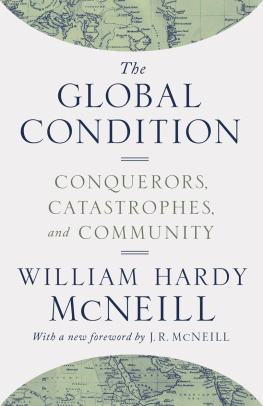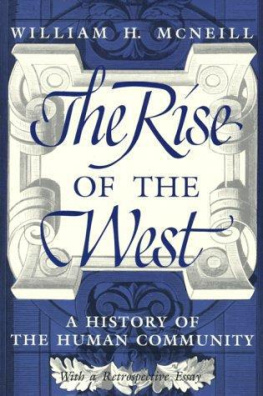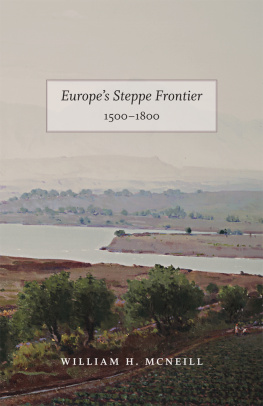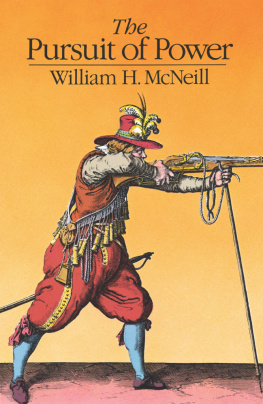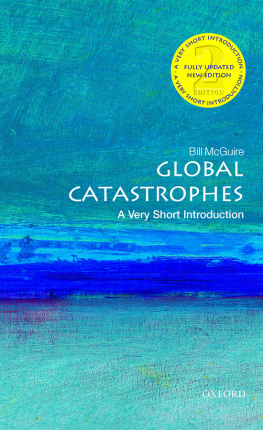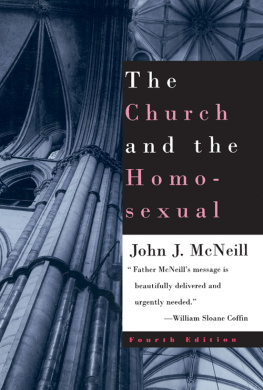Published by Princeton University Press,
41 William Street, Princeton, New Jersey 08540
In the United Kingdom: Princeton University Press
6 Oxford Street, Woodstock, Oxfordshire OX20 1TR
Copyright 1992 by Princeton University Press
All Rights Reserved
New Princeton paperback printing, with a new foreword by J.R. McNeill, 2017
Paperback ISBN: 978-0-691-17414-3
Library of Congress Control Number: 2016958260
British Library Cataloging-in-Publication Data is available
press.princeton.edu
Printed on acid-free paper.
1 3 5 7 9 10 8 6 2
Foreword
WILLIAM MCNEILL was born in Vancouver in 1917. His parents came from opposite ends of Canada, one from a farm on Prince Edward Island and the other from the timberlands of Vancouver Island. His parents met at McGill University where both studied English literature and, according to unverified family lore, both became valedictorians. It was unusual for a P.E.I. farm boy to attend university in those days, and John T. McNeill had to win a prize as the best schoolboy on the Island to get there. It was even less likely for a young woman from the sawmill camps north of Nanaimo, B.C. to attend university, and Netta Hardy had to disappoint her family and convince a temporarily rich uncle to pay her way to McGill. Her parents expected her to help raise her nine younger siblings rather than vanish to Montreal and put on airs.
His parents choices and routes brought two legacies that William McNeill embraced. The first was a feel for the English language. He had two of the most literate parents in Canada. His father knew vast tranches of the King James Bible by heart, the result of a Presbyterian childhood and eventually of theological training and a career as a historian of the Christian church. His mother could recite reams of Victorian poetry from memory. They bequeathed to him (and to his sisters) a love of words and a keen preference for precision in their use.
The second parental legacy was ambition, which came mainly from his mother. She had broken with her own parents and desperately needed to show them that university education and the life of the mind was worthwhile and not frivolity. She was ambitious for her husband and for her son. She was a helicopter parent before helicopters existed, and urged her son to aim high, work hard, and seek distinction. Both her husband and her son became professors at the University of Chicago. That did not help to mend fences with her Vancouver Island kin, but provided her with a deep satisfaction nonetheless.
From his undergraduate days at the University of Chicago, William McNeill conceived a plan to write a big book on all of human history. He began in earnest in the mid-1950s. Along the way many ideas came to him that he could not work out fully in the published book, The Rise of the West (1963). Some became the basis of lectures he gave at universities in the U.S. and Canada and appear in this little book.
Five lectures he prepared between 1979 and 1986 form the core of this book. At that time, William McNeill was nearing the end of his long professorial career at Chicago, teaching less and traveling more. He remained at the height of his intellectual powers, as these pages attest. They provide quick access to some of his most influential work. For in these lectures he positioned some of the ideas he had left out of his major works, The Rise of the West, Plagues and Peoples (1976), and The Pursuit of Power (1982)the three books he considered his best.
The first two chapters here are lectures delivered in 1982 at Baylor University. They represent McNeills reaction against the comforting American piety, as he saw it, of the Turner thesis. His Canadian upbringing, McNeill sometimes said, inoculated him against naively patriotic versions of American history.
Formulated in the late 1880s, Frederick Jackson Turners argument postulated a link between the wide open spaces of the American frontier and the democratic culture and rugged individualism of American society. It made no mention of slavery and its westward spread before 1861. For decades just about everyone learning American history learned the Turner thesis, and was usually encouraged to accept it as part of what made the U.S. exceptional among nations. McNeill rejected it, calling it here a romantic delusion, in favor of a broader vision of frontier politics.
In that broader vision McNeill argues that lands of low population density and weak state control invited one or another extreme in the hierarchical structure of human society: either a rude egalitarianism of the sort Turner saw, or its opposite, a brutal master-and-slave (or master-and-serf) society. The U.S. featured both at the same time, as did, for a while, Brazil, Russia, South Africa, and Australia. These two essays represent McNeills effort to set U.S. history into a broader global pattern, building on earlier efforts of Walter Prescott Webb and Louis Hartz.
McNeill goes further than Webb or Hartz in trying to explain just why and how frontier situations came to exist in the Americas after 1492, in Australia after 1788, in South Africa after 1652, and in Russia and Ukraine. He locates the principal reason in disease history. He adduces the same explanation for the openness of Ukraine to settlement in the 14th and ensuing centuries, citing the recurrence of bubonic plague, as for the Americas, where introduced infections scythed down millions after 1492. The argument with respect to Ukraine and Eastern Europe has met with little assent from specialists, and McNeills balancing of overseas and eastward European expansion as two parallel movements has not persuaded world historians generally.
But his vision of the character of the frontier has held up better. McNeill saw regimes of compulsory labor as more characteristic of the worlds frontiers than was rude egalitarianism. Russian serfdom, African slavery in the Americas, and slavery in South Africa all responded to the same governing condition, labor shortage, and were more common than the democratic individualism celebrated by Turner and Webb. Only where oceans made military protection costs low, as in North America and Australia, could radical freedom and egalitarian society prosper. (Even this, however, does not explain the divergent paths of north and south in the U.S. before 1861 or the prevalence of convict labor in Australia after 1788.)
In the second of these two lectures, McNeill connects population growth in Europe with migration to regions where land was cheapthe lands of the Great Frontier. This spate of migration, which included coerced as well as free migrants, spread a handful of lethal infectious diseases still further. That process led to further depopulation in the Americas, Australia and New Zealand, Siberia and so forth, which in turn opened opportunity for further migrants. By about 1920, however, continued population growth in the lands of the Great Frontier spelled an end for this particular pattern, which McNeill regards as a transitory phase. So the dynamics of the Great Frontier rested on an imbalance in demographic equilibria unusual in world history before 1500 and over with by 1920.
These essays show a confident familiarity with the broad lines of demographic history, migration patterns, and political development around the world after 1500. They strive to make general sense of characteristics that U.S. historians (of earlier generations) had supposed were unique to the U.S. McNeill saw his efforts as an antidote to provincial and patriotic histories. To some extent they embrace the Cold War contrast between the U.S. and Russia so common in the 1980s, but locate the explanation for differences in freedom between the two countries in places that allow little room for American self-congratulation. In their reliance on population growth, disease, and migration as motors of world history, these chapters are vintage McNeill.

